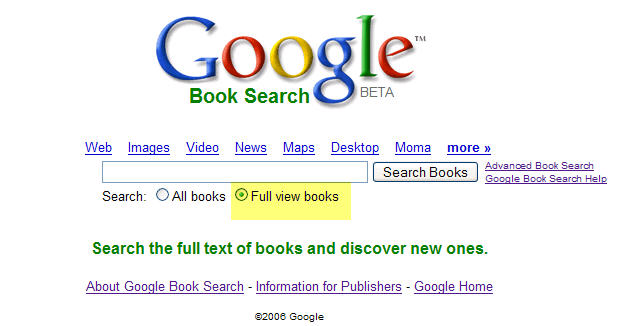There’s a lot of free, high quality educational materials floating around the ether. It’s just a question of knowing where to find them, and what’s wheat and what’s chaff. On the left hand side of this page, you will find carefully-selected collections of free university podcasts, free online courses and media, and free educational web resources. These pages will stay under active development. So bookmark them, watch them grow, and profit well from them.
The Pynchon Reviews Roll Out
And it’s not looking too pretty. The New York Times review begins:
Thomas Pynchon’s new novel, “Against the Day,” reads like the sort of imitation of a Thomas Pynchon novel that a dogged but ungainly fan of this author’s might have written on quaaludes. It is a humongous, bloated jigsaw puzzle of a story, pretentious without being provocative, elliptical without being illuminating, complicated without being rewardingly complex.
You can read the rest here.
Also see the New Yorker review.
Milton Friedman Remembered
Milton Friedman, a Nobel Prize winner, architect and leading advocate of free markets, and one of the most important economists of the 20th century, died this past week at 94.
The University of Chicago, where Friedman taught since 1946, has collected a series of articles reviewing his life and accomplishments. Along similar lines, Stanford’s Hoover Institution, with which Friedman was affiliated from 1977 until his death, has posted a page that includes links to videos featuring the economist. (Look for the videos under the area called “Publications.”)
Finally, from the Youtube archives, you can see a short clip from 1980, where we find a younger Milton Friedman and Don Rumsfeld in conversation.
Yale Takes the Podcast Plunge

Image by Pradipta Mitra, via Wikimedia Commons
Yale announced yesterday that it’s joining the podcast revolution, and they’re doing it with a little bit of ooomph. (Click here to enter Yale’s collection.) What you’ll find on Yale iTunes are free lectures by Yale’s big hitters. You’ll find Vincent Scully talking about Philip Johnson’s architecture, John Gaddis giving us his spiel on the future of the Bush Administration, Madeline Albright praising the virtues of public service, and Tian Xu giving us the lowdown on the state of the human genome. As a parting thought, I guess this means that Harvard should be launching something some time soon. Days? weeks? months? It’s only a matter of time. We’ll keep an eye on it. In the meantime, load Yale’s finest on to your iPod and prosper.
Google Presents the Classics (for Free)

There’s more to Google Book Search than a good lawsuit. These days, they’re serving up the classics — all in the public domain– for free. Literary folks can now read and search the complete collection of Shakespeare’s works. And, in some cases, you can even download PDF versions to your computer. Beyond the Bard, you can also get The Iliad and The Odyssey, from the original bard, Homer. A little Dante’s Inferno in Italian, plus Machiavelli’s The Prince in translation. And Jane Austen’s Pride and Prejudice. I think you get the picture. If it’s old and classic, you can nab it at Google Book Search.
Resources:
- Other Major eText Collections: check out this Open Culture page.
- Google’s Scary Stories — For Halloween, Google put together a nice page where you can read or download some spooky classics on the cheap. Here, you’ll find Bram Stoker’s Dracula, Henry Jame’s Turn of the Screw, Robert Louis Stevenson’s Dr. Jekyll and Mr. Hide, and more. For more info, see Google’s Blog entry.
- Related Google Blog Entries
- Download the Classics
- Preserving Public Domain Books
- A New Way to Browse Books — On Google’s Blog, they mention that, with the help of Ajax, they just improved the usability of Book Search. It’s worth reading how you can now get the most out of the product.
- See our collection of Free eBooks
Stanford on Your iPod: The Literature of Crisis
Day after day, on campuses across the country, professors impart invaluable knowledge to students. And, somewhat unfortunately, this knowledge has been traditionally disseminated only so far — which is to say not beyond the classroom walls.
We’re perhaps at the early stages of seeing this change. Stanford University has recently teamed up with Apple to pilot iTunes U — a variation on the iTunes software package that exploded into consumer consciousness with the iPod revolution.
Until recently, Stanford has used iTunes U to make available a series of one-off lectures, many of them extremely worthwhile. (If you have iTunes, click here to enter Stanford iTunes. If you don’t, you can download it from Apple for free.) But what’s new is the university’s decision to make full-fledged courses available to the public. This quarter we’re starting to see that decision bear some fruit. In iTunes, you’ll now find weekly installments of a course called The Literature of Crisis. Taught by Marsh McCall and Martin Evans, two senior faculty members, the course explores how crisis — dramatic personal crisis and larger societal crisis — have shaped the lives and writings of major intellectuals, from Plato, to Shakespeare, to Voltaire. Whether you live in Palo Alto, New York, or Bangalore, you can subscribe to this course as a podcast by clicking here, and, each week your iPod should automatically download the latest installment. (If you don’t have an iPod, you can simply listen to the course on your computer.)
Click to access:
The Quick Start Guide to Stanford on iTunes
If you want to subscribe to the individual RSS feeds rolling into Stanford on iTunes, just click here.
Countdown to Pynchon
Thomas Pynchon has made a career milking elusiveness for all its worth. His writing is notoriously hard to pin down. Publishers never know when to expect something new. (He has only put out 6 books since 1963.) And, physically, Pynchon is nowhere, ever, to be found.
But this much we know right now. Against the Day, his next novel and the first since 1997, is set to be published on November 21, 2006.
This big book (1120 pages) is a big deal within Pynchon circles, so much so that Pynchon’s publisher, Penguin, hasn’t bothered promoting the book, other than casually listing it on Amazon. Admist the hoopla, one of the cooler things to emerge is the Against the Day Wiki. Using the same software as Wikipedia, the Pynchon wiki will let Pynchon enthusiasts develop entries that tease out the novel’s characters and events. Oh, can’t you taste the minutaie?!
Dave Eggers’ Real and Imagined Sudan
Dave Eggers entered the literary world with a big bang. His first book, A Heartbreaking Work of Staggering Genius (2000), came out of nowhere and sat on the bestseller list for 14 weeks. It also made Eggers a Pulitzer Prize finalist and almost the recipient of a rich movie deal — had he not turned it down.
This wunderkind’s early success naturally created high expectations, and his next efforts, a novel in 2002 and a collection of short stories in 2004, never quite captured readers’ imagination in the same way. Now, with What Is the What, we see Eggers coming back home to non-fiction, albeit a very different form of non-fiction than the one we discovered in AHWOSG. Here, the post-modern devices drop out of sight, and what we get is more the imaginary journalism that we’ve previously encountered in the works of Truman Capote and Norman Mailer.
The What is the What recounts the long journey of Valentino Achak Deng, one of the 20,000 “Lost Boys,” who fled the Sudanese Civil War (1983–2005) and, though mostly younger than than 10, traveled alone to Ethiopia, Kenya and, in some cases, the United States. (About 4,000 ended up in the US in 2001.) Because Valentino began his odyssey as a mere six year-old, the whole question of memory get raised. How much does a child remember? Broad outlines maybe. But how many facts, details and conversations fade away? As Eggers explains in a recent interview , the creative elements added to this otherwise factual account serve to fill in these gaps in recollection, and the elements, themselves, are based on historical records and Valentino’s general sense of things. It is here that Eggers’ notion of imaginative journalism sets itself apart from many other attempts at new journalism. The point of imagination for Eggers isn’t so much to dress up dry facts and drive the narrative along, but to make the historical record more complete and, in a genuine way, give a fuller account of a personal experience. Perhaps this comes off as a meaningless shade of difference. But, when you get down to it, it’s more substantive than not.
Articles and Reviews:
This hour-long radio interview with Eggers and Valentino is definitely worth a listen.
NPR Fact Page: Dedicated to Eggers’ new book, this page includes links to a recent NPR interview, excerpts from the new book, and historical information about the Lost Boys.
You can get more contextual information from the PBS site, which accompanies its film, Lost Boys of Sudan.
Plus check out the reviews in New York Magazine and The New York Times.

